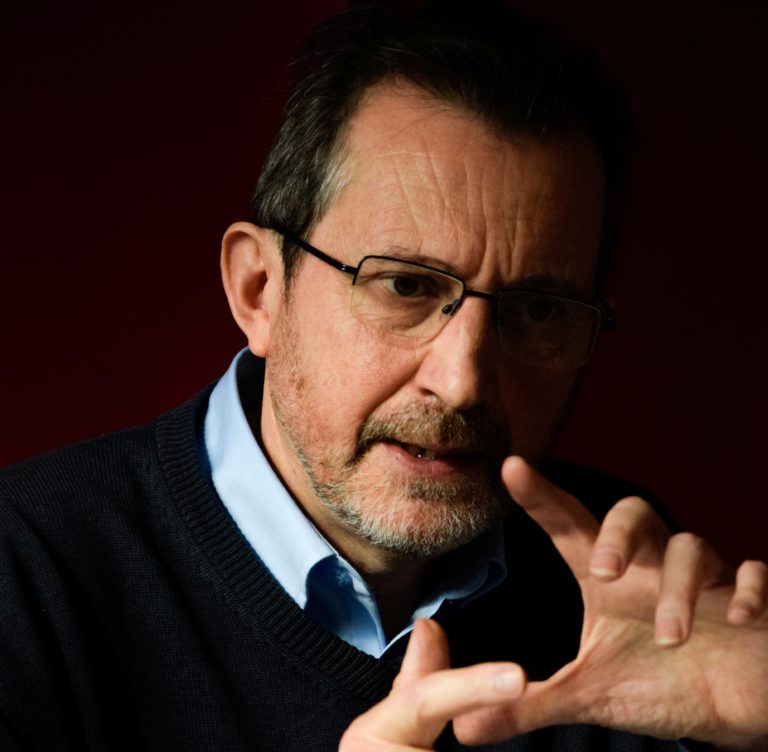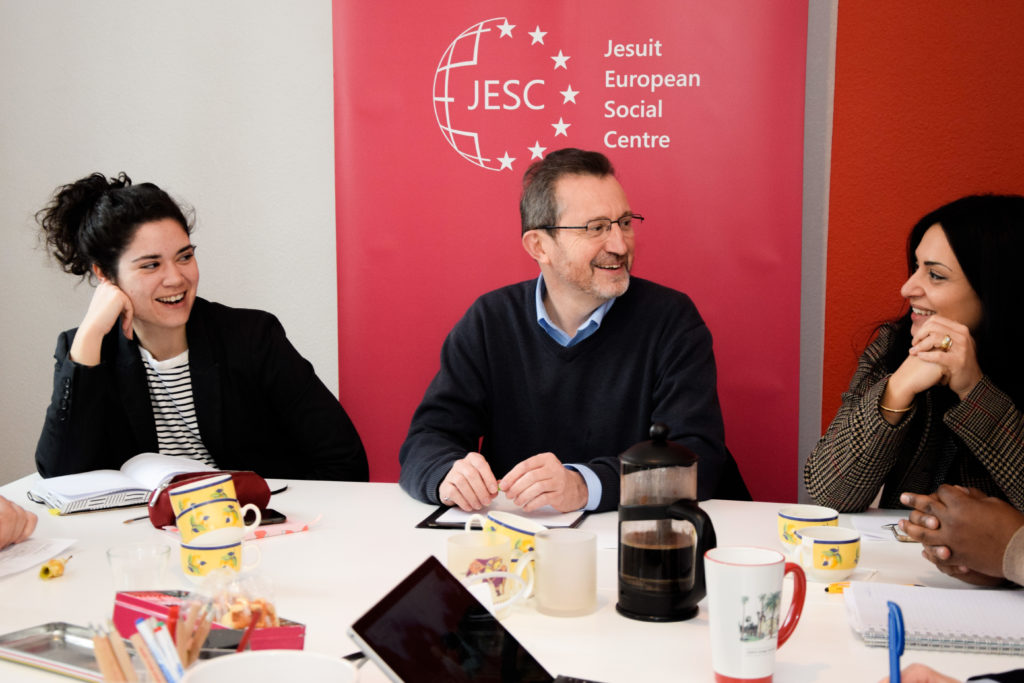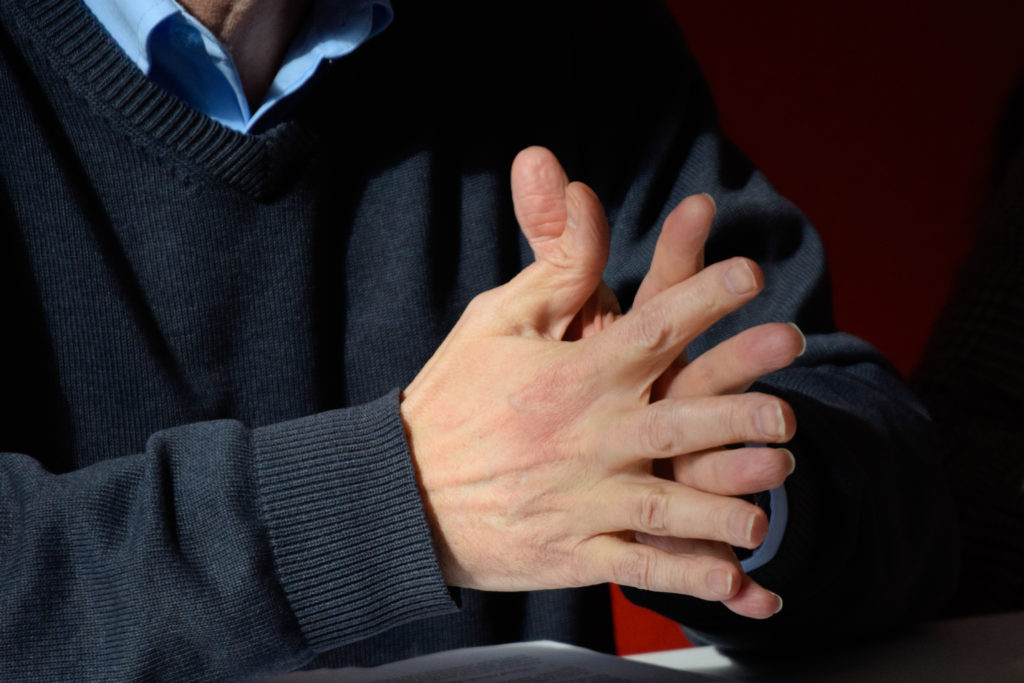
Talking about ‘good discernment’ sounds as if you mean making good decisions. But it is much more than that. It’s about changing our whole way of thinking – and eventually the paths our lives take. Through good discernment, for example, we can think positively about Europe, even in a time of rising populism and Brexit. How?
We asked Franck Janin SJ, the President of the Conference of European Jesuit Provincials, who recently visited JESC.
President Franck Janin SJ, what does ‘good discernment’ mean?
The goal of a good discernment is to answer a problem being attentive to what is moving deeply within ourselves – but, it is not easy. We have to dig inside. The human being has a body, a mind and a psyche, but is also a spiritual being who is open to the mystery of life, to the divine. From that perspective, spirituality can be a strong source of action. Discernment is at the core of spirituality.
How does this work?
The first exercise of discernment is listening. Listening to the movements within us through our thoughts and feelings. Ignatius of Loyola, founder of the Society of Jesus, in his teaching, passed on the idea that discernment must come through relationship; we cannot do it alone but either in individual discernment with someone who is as a ‘spiritual coach’ or in common discernment in interaction with others. The first step is to listen actively and also to speak sincerely, with the intention to help the shared process in a practical way. Secondly, we have to the other is not a threat or an enemy. The best sign of good discernment is when we make a decision that is not just according “my” idea but one that includes new aspects that I did not think of before. But this does not mean that I have to say “Yes” to everything that others say.
Could good discernment at the political level potentially make the EU members agree on significant topics such as migration or climate change?
Yes, because if we were really listening to each other without prejudices and fears, attentive to the common good, we could find creative answers. Our world needs reconciliation, particularly in Europe. Many forces have divided Europe. Our problems are not only on the borders of countries. Real borders are within us like walls that we have erected to protect ourselves in our relationships with others, especially those who are different from us.
How do Jesuits all around the world manage their diversity of opinions?
It is difficult as for everybody else, especially when it comes to a confrontation between people with opposite backgrounds. For example, between one who is an academic and works in a university and another who works with the poor or in prison. You can hear loud arguments and reproaches such as: “you are too intellectual!” or « we are not an NGO!» But in the end, our strength is that we agree on our common values and spirituality, and this makes it possible to move in the same direction. This is precisely what EU members should also try to do.
A Europe without the UK – what do you think of Brexit?
I try to be positive; this is a spiritual exercise and an intellectual effort. We can very easily be tempted to give up and say that Europe is falling apart, that there is nothing we can do. I think the opposite – I hope we can learn from the situation. It is difficult to build Europe. However, leaving it brings even more difficulties. In a sense, I hope the exit of the UK from the EU might discourage other countries from doing the same.
In a recent worldwide Conference of the Jesuit Higher Education in Bilbao, Superior General Arturo Sosa SJ, originally from Venezuela, encouraged Europeans not to give up the European dream. He underlined its importance as an example for a continent such as Latin America, as a good model of different countries working together on a shared basis.
‘Journeying with the youth’ is one of the new priorities stressed by the Superior General Arturo Sosa SJ for the next ten years. What does it mean?
It means that we do not pretend to tell the youth what to do, but that we are called to accompany them in the discovery of themselves and in their faith journey toward God. Many young people live their lives in fear, wondering if they will succeed in life, whether they are going to have a job or even if it is still meaningful to have children in such an uncertain world. The best way to make them feel better about themselves is to give them responsibilities so they realize that they can make a difference in the world. They must feel important because their role is meaningful.


Susan Dabbous
Communications assistant 2019

